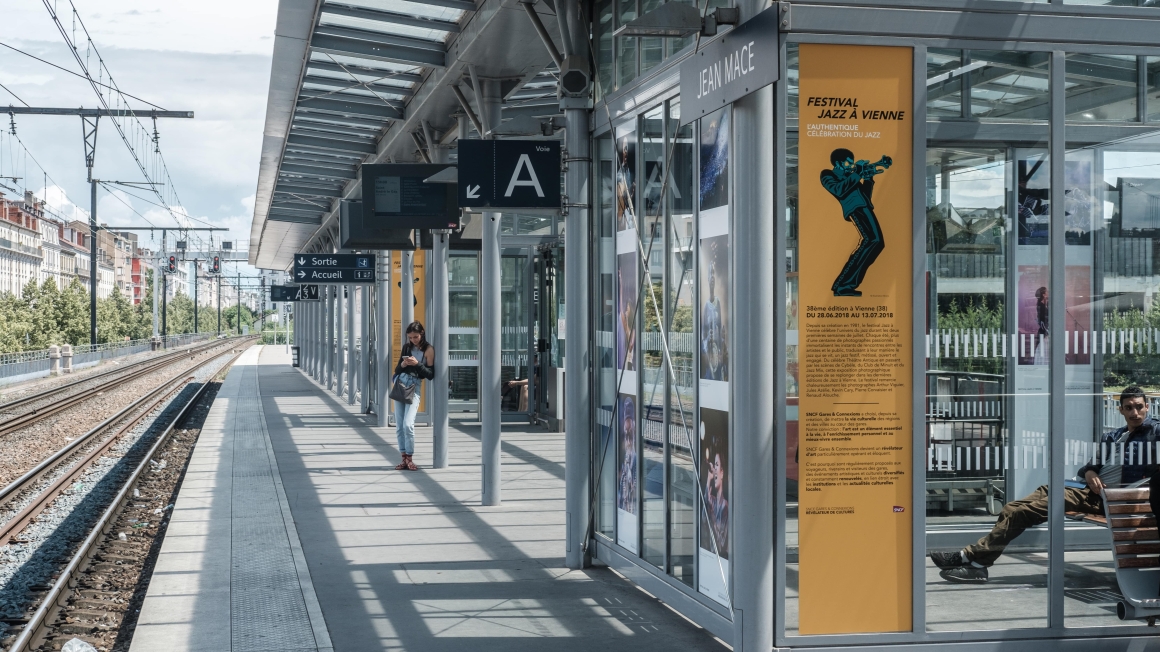Jazz à Vienne’s commitments
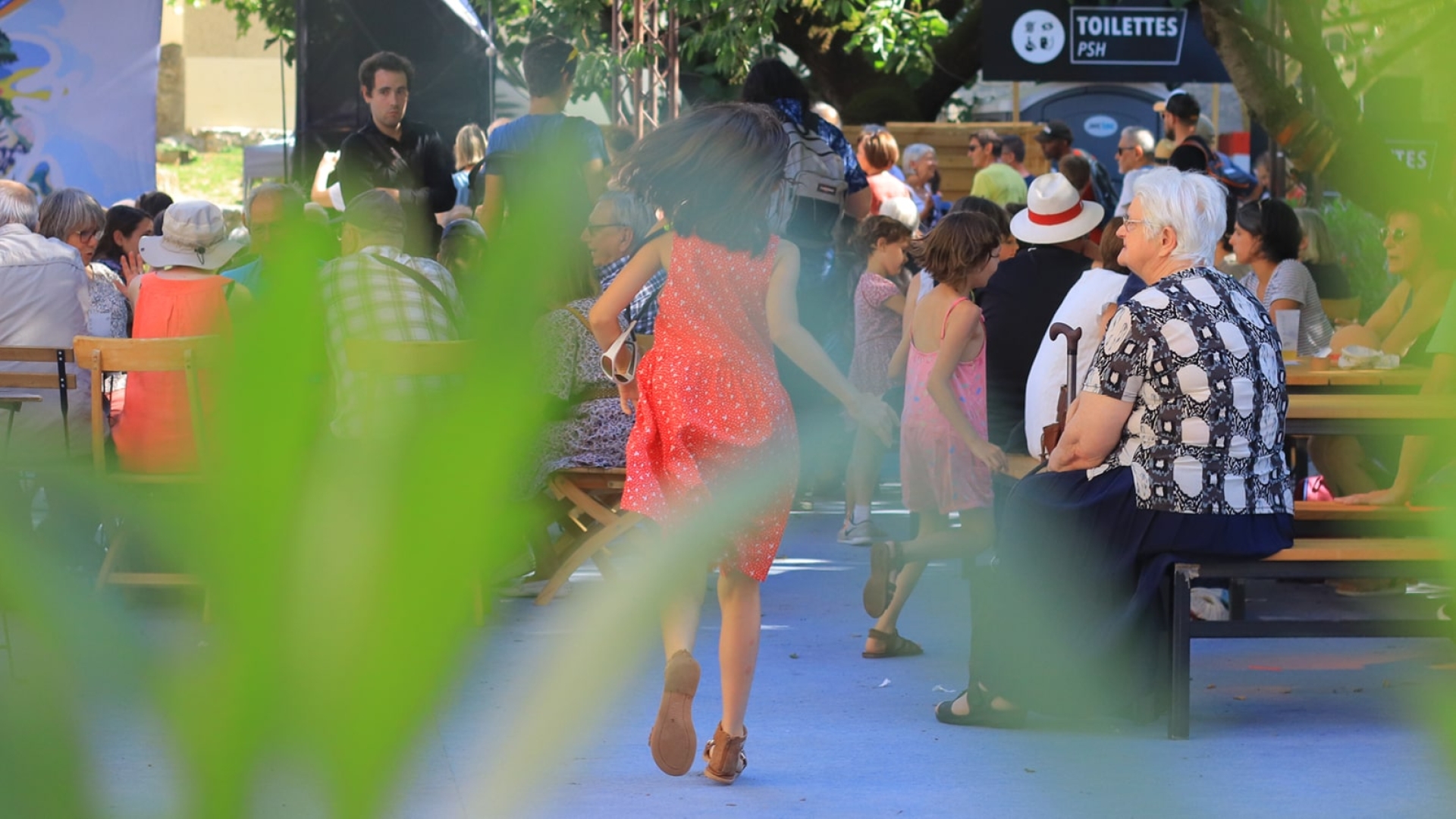
The Arts and Culture industry plays a strategic role in the French economy; it accounts for 3.2% of national wealth and provides 670,000 jobs. According to the report from the Union of Contemporary Music (Syndicat des Musiques Actuelles), festivals have become major drivers of regional development that turn arts and culture into a melting pot and a locus for professional exchange. Festivals are one of the most popular ways to enjoy the arts and culture in France and they are often young people's first cultural experience.
Jazz à Vienne has been a public institution (EPIC) since 2011. It is both one of the largest French festivals and the biggest festival in the Auvergne-Rhône-Alpes region, with over 40 years of history. Jazz à Vienne now attracts 230,000 festivalgoers and puts on 250 concerts every year — of which 200 are free — over 16 consecutive days of 14 hours of music.
Over 400 people work behind the scenes to ensure everything runs smoothly. The festival works in collaboration with over 300 businesses (clients, service-providers and partners) and around 50 project leads, associations and other organisations.
It is our responsibility to design models that are robust and suited to today's challenges.
Jazz à Vienne always strives to maximise the public interest, seeking both to give back through its projects and to foster togetherness. We work hard to adhere to our values and to plan in a collective, coordinated manner. The festival is an unending work in progress over four decades in the making that seeks to sustain our common cultural heritage and is bigger than any single person.
- Our sustainability policy aims for constant improvements that increase the satisfaction of festivalgoers, artists, local residents and businessowners, as well as regional economic and institutional stakeholders.
- Our policies and social responsibility are at the heart of all the ways in which we improve our methods.
- We actively discuss social responsibility, waste, energy and water management, but also the strength of social ties, sustainable consumption, regional dynamics, entrepreneurship and solidarity.
- The festival is committed to further progressing along this path so as to increase its positive impact.
The major impact of events on the scale of Jazz à Vienne must be carefully considered:
- The festival has a social impact by placing cultural projects within the reach of as many people possible
- It has an economic impact through job creation and other direct and indirect benefits
- It has an environmental impact due to emissions from transport and waste, as well as noise.
Jazz à Vienne has set itself the goal to better manage its local impact by maximising its positive economic and social legacy while minimising its negative consequences.
In September 2021, the festival gained ISO 20121 certification ('Event sustainability management systems') for its sustainability policy. This is testament to its strong commitment to organisation-wide sustainability. Achieving this highest international standard in sustainability is evidence of management practices that are sustainable in environmental, economic and social terms. Annual audits ensure constant progress.
The teams behind the festival have leveraged the ISO 20121 'Event sustainability management systems' standard to set out plans that respond to Jazz à Vienne's key focus points over the coming years:
- Social responsibility for a Jazz à Vienne festival that is open to all: Artistic transmission / Cultural outreach / Accessibility.
- Economic responsibility — A festival that promotes the region in which it is embedded: Local embeddedness / Local promotion / Employment and labour market access / Local supply chains.
- Environmental responsibility — A festival that works to reduce its footprint: Audience transportation / Energy management / Waste management.
This methodology is an incentive to work harder and provides a framework to do so in an organised, appropriate and legible manner. The entire Jazz à Vienne team has its mind on the future and is convinced that this approach is a way forward that will open new, exciting horizons for an ever more sustainable festival.

Jazz à Vienne, open to all

Jazz à Vienne est, bien plus qu'un événement musical, un véritable moteur de cohésion et d'innovation culturelle. Animé par une volonté d’ouverture et de transmission artistique, le festival se distingue par ses projets inclusifs, pédagogiques et solidaires. En fédérant des publics de tous âges et de tous horizons, il affirme son rôle de service public et sa capacité à transformer la musique en un vecteur de partage et d’émancipation à travers différentes actions mises en place.
A festival that brings people together
Jazz à Vienne is a festival that brings people together and provides support for projects that aim to reach out to others, for others. It performs this public service through the transmission of the arts and culture.
Details
- Jazz à Vienne's national ReZZo springboard places the next generation of jazz artists in the spotlight. The winning group receives comprehensive artistic support from the festival for a year. 167 participants. Find out more
-
Every year, over 8,000 primary school pupils from across the region attend the Young Audience's original concert at the Théâtre Antique thanks to a partnership with the Délégation Académique aux Arts et la Culture de Grenoble (Grenoble Academic Arts and Culture Delegation), the Vienne Condrieu Agglomération and the City of Vienne.
- Numerous pedagogical opportunities via courses and workshops open to all ages and abilities. Every course includes a live performance so that participants can experience being on-stage with professional equipment and support. In partnership with Vienne's Music and Dance Conservatory. Find out more
- Free concerts and Jazz for Kids workshops for children aged 4–14 at Cybèle for a family-friendly festival thanks to partnerships with local bookshops, games libraries and museums. Over 1,500 children benefitted in 2023. Find out more
- Jazz à Vienne is linked to the Impulse! project led by the Rural Music Centres (Centres Musicaux Ruraux). Throughout the year, pupils at 6 schools across the region are invited to work on an original music project alongside a musician. The result of this collaboration between 6 schools (100 pupils) is a live performance on-stage at Cybèle.
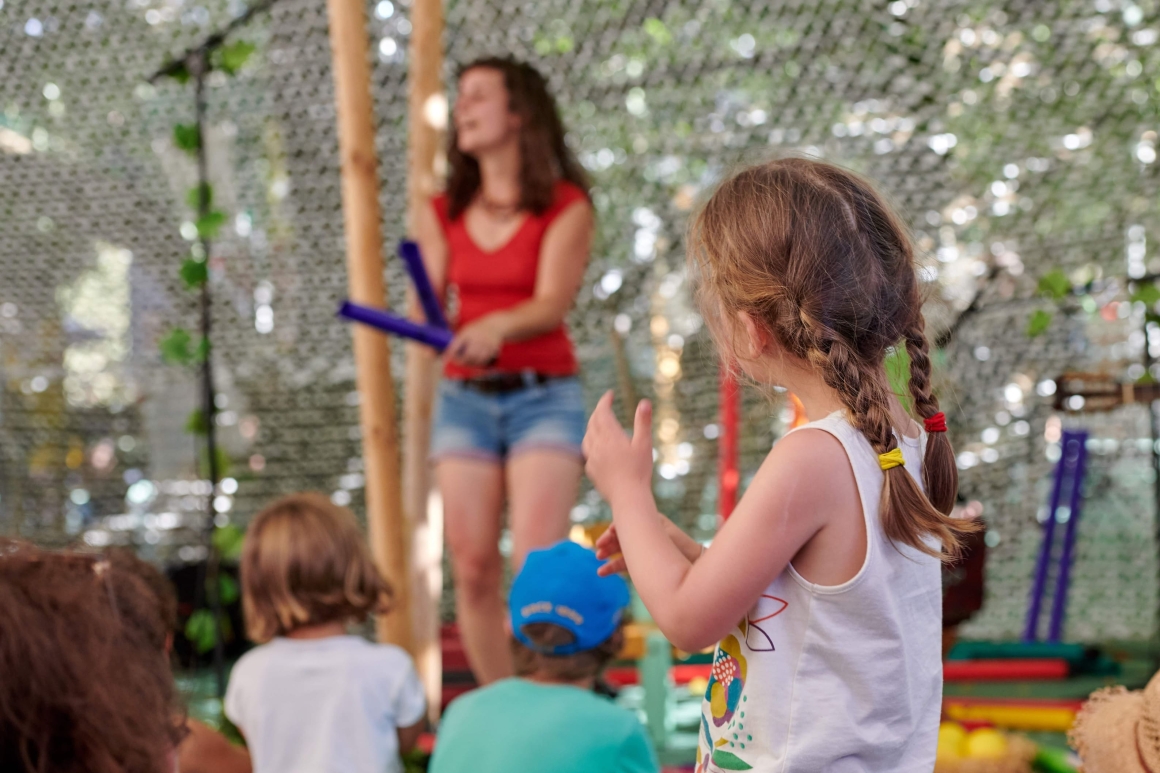
Workshops
The city of Vienne will be sporting Jazz à Vienne's colours. The festival will be dressing Vienne's streets with ephemeral art pieces crafted at workshops led by the Maison du Festival in partnership with Vienne's communal centres for social service, the AFIPH's medical and social services, the children, youth, adults and senior citizens at the social centres, the children at extracurricular activity venues, the pupils at the Lycée Agrotec, and festival volunteers. All the pieces are made from upcycled materials provided by project partners. Every year, 550 people take part in the various projects. Find out more
Solidarité
Jazz à Vienne's pricing structure has been designed with everyone in mind; 75% of events are free.
In partnership with Vienne's MJC (community youth club and arts centre), the Caravan’Jazz will be roaming the communes within the surrounding urban area to offer free concerts in nearby villages to residents unable to travel into Vienne.
Staff at a sheltered workshop will be working at the organising teams' canteen and maintaining the festival's offices.
The Jazz à Vienne festival has been organising arts workshops at the Saint-Quentin-Fallavier penitentiary for over 5 years.
The festival strives to be a welcoming and comfortable space for all.
Nos actions
- A dedicated team of volunteers and specialist equipment for festivalgoers with disabilities. Find out more Find out more
- Creative workshops in partnership with the Isère Family Association for People with Disabilities (AFIPH)
- The festival has also partnered with Flous Furieux — a unique photography collective whose members are namely people with disabilities and people experiencing psychological suffering and social difficulties — to build a new vision of society and encourage cultural agency. Members of the collective will be joining the team as the festival's official photographers.
- Partnership with the ITHAC Association's workshops. ITHAC is a value-driven sheltered workshop working to offer sustainable employment to people with disabilities. The workshops at this truly social and inclusive business will be making the t-shirts worn by the festival's seasonal workers and front-of-house teams. The t-shirts are made from organic cotton and sewn in the Somme department (n°80). The dying and printing are performed in Roanne (department n°42), and the tailoring is done in Riorges (42). 100% made in France!

Jazz à Vienne's local embeddedness

Jazz à Vienne s'engage à valoriser le territoire de la région Auvergne-Rhône-Alpes à travers une politique d’achats responsables et une mise en lumière des savoir-faire locaux. Ce choix s'inscrit dans une démarche éthique et environnementale visant à privilégier les circuits courts, la saisonnalité et les collaborations durables avec des acteurs locaux.
En associant agriculteurs, artisans, restaurateurs et institutions locales, le festival fait bien plus que proposer des produits de qualité : il contribue au développement économique et culturel du territoire. Chaque édition mobilise une centaine de prestataires, génère des retombées économiques significatives et soutient des initiatives responsables.
From its outset, Jazz à Vienne has drawn on the region's driving forces. Its status as a Public Establishment (EPIC) and its place within the Communauté d'Agglomération strengthen this role and make it somewhat incumbent upon the festival to embed its activity within local networks.
Offering festivalgoers quality products sourced from within the Auvergne-Rhône-Alpes Region is a way to sustainably fulfil our mission to highlight the area's strengths and craftsmanship.
Jazz à Vienne has established a sustainable purchasing policy with 3 key goals:
- The prioritisation of suppliers that have strong ethical, social responsibility and environmental standards
- The festival's enrichment via the craftsmanship of innovative and dynamic suppliers
- The strengthening of regional development via the prioritisation, to every possible extent, of local providers and suppliers and the promotion of short supply chains and seasonal produce.
Our work
- Bar and restaurant supplies are sourced directly by the festival's teams so as to achieve higher management and supervision standards.
- Local expertise is identified through the Isère's Chamber of Agriculture and the agricultural mission of the Vienne Condrieu Agglomération Economic Agency.
- Only locally supplied products that are in-season and available via short supply chains are used at the festival's bars and restaurants. Find out more
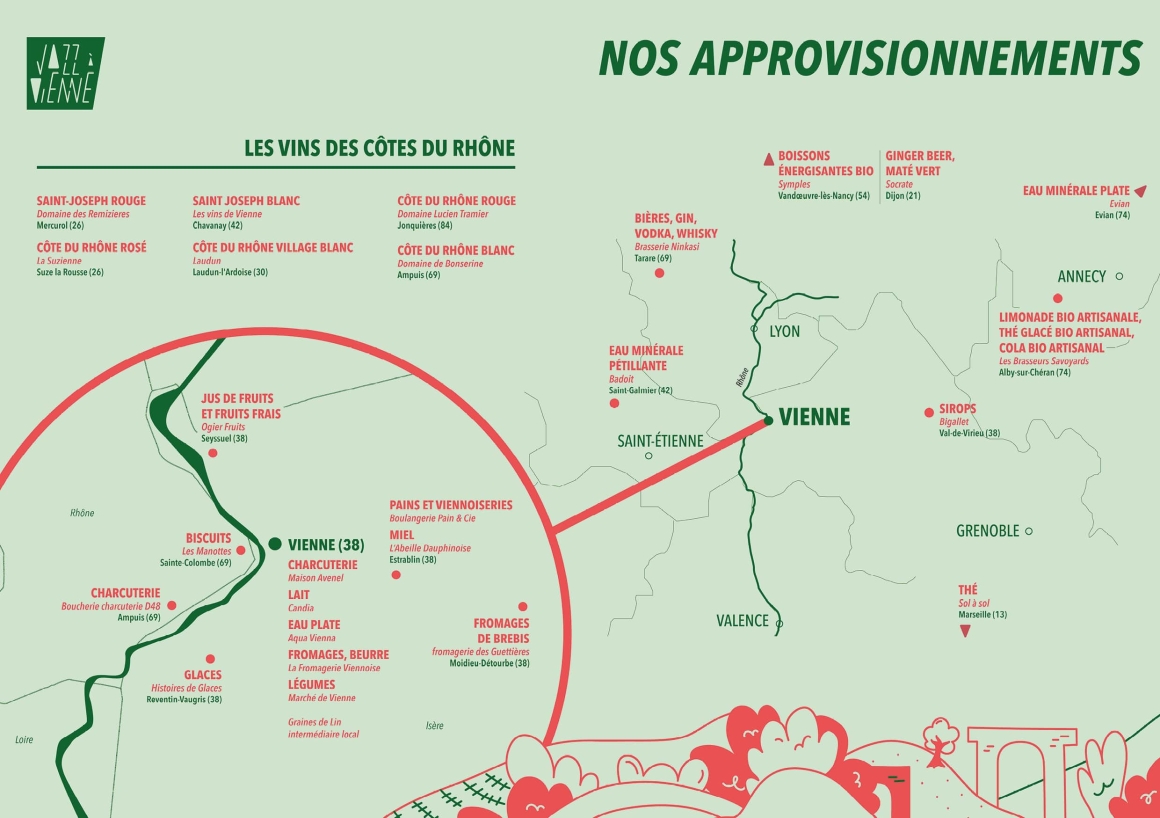
Through its extensive local and international network, the festival is fully engaged in promoting the region in which it is embedded.
With direct and indirect contributions to the local economy worth around 17 million euros, over 650 payslips are issued for workers on permanent contracts, fixed-term contracts, seasonal contracts, interns, artists and technicians. Jazz à Vienne fully contributes to the region's economic development.
Our work
- The furniture at Cybèle is made by students at the Lycée Professionnel Galilée in Vienne. The access badge lanyards are produced at Pont Evêque by BEAL, the world leader in climbing rope. The furniture in the Business Area has been provided by Sellerie du Pilat in Vienne (certified Entreprise du patrimoine vivant (Living Heritage Business)) and the sorters were made by the Emmaüs community.
- Regional restaurateurs, including the students at Vienne's Lycée Hôtelier, have been entrusted with the recipes for the glass-jar dishes (plats du jour) sold at Cybèle
- Jazz à Vienne works with around 100 suppliers and providers indispensable to the festival's operations
- A special Jazz à Vienne Michelin Green Guide for a richer touristic experience of Vienne and its surrounding area
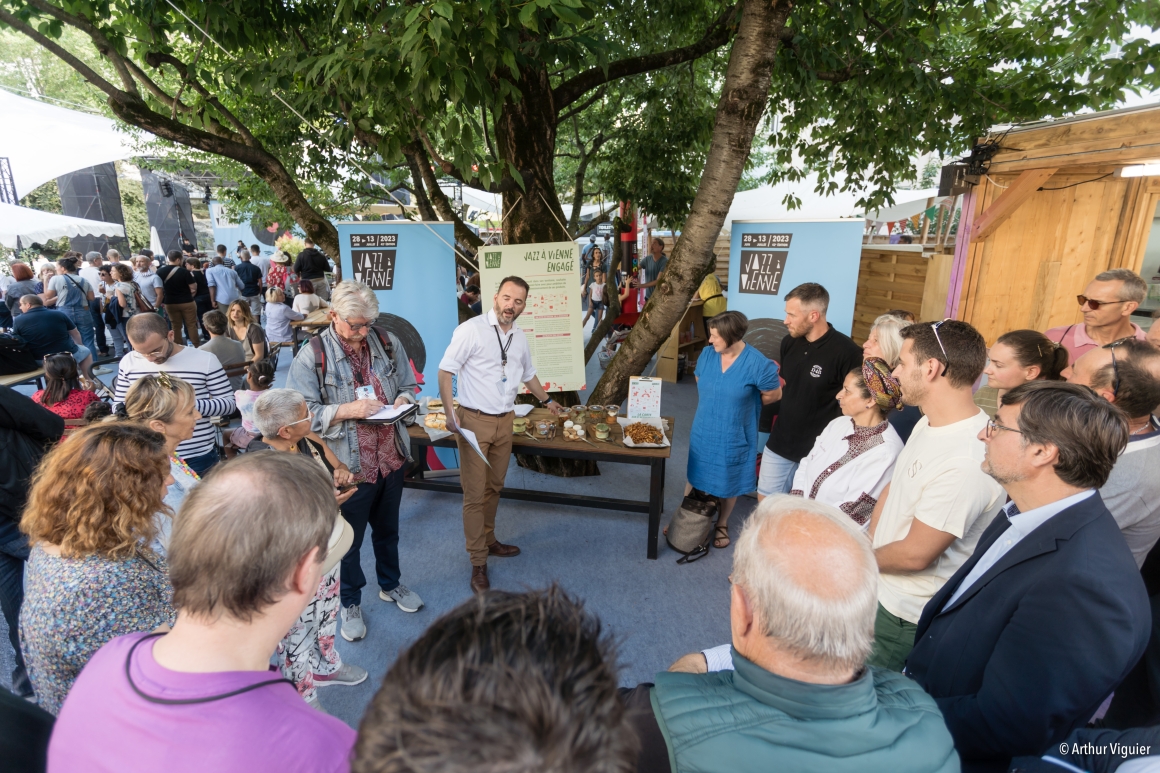
Jazz à Vienne — mindful of its carbon footprint

Jazz à Vienne s'engage pleinement dans une démarche écologique et responsable intégrant des pratiques durables à tous les niveaux de son organisation. Chaque année, ce sont plus de 200 000 festivaliers, près de 400 collaborateurs et des dizaines de tonnes de ressources gérées avec soin pour minimiser l’impact environnemental du festival.
En collaborant avec des acteurs locaux et en innovant constamment, Jazz à Vienne vise à transformer ses défis logistiques en opportunités pour promouvoir une culture éco-responsable. Une ambition qui allie musique, partage et respect de l’environnement dans une dynamique au service du territoire et de ses habitants.
Every year, over 200,000 people attend the festival and around 400 people work on it behind the scenes. Over slightly more than a fortnight, dozens of tonnes of waste are collected by Vienne Condrieu Agglomération's teams and delivered to the region's recycling centres, where as much as possible is made from it. Waste is a key issue on which Jazz à Vienne is working alongside all the relevant actors.
Redefining our practices
- Waste production is an important criterion that we consider as part of our purchasing and supply policy.
- Overhaul of our recycling hub distribution plans; hub reduction; deployment of more practical recycling containers that are more visible and made from recycled materials; new recycling guidelines.
- Improvement and refining of our flow and operational area monitoring methodology.
- Creation of perennial and reusable signage.
Reduction
-
Plastic water bottle distribution swapped for water fountains for festivalgoers and team members
-
Glass mineral water bottles in the business and artists' areas swapped for Aqua Vienna water jugs from the City of Vienne's network.
-
A selection of regional drinks (beers, lemonades, iced tea) served from reusable stainless-steel casks
-
Introduction of a range of returnable wine bottles to promote the reuse of glass
-
Priority given to loose supplies in dressing rooms
-
Food containers and packaging swapped for single pieces of compostable baking paper for all products on sale
-
Reusable, returnable cups without any markings to promote their return to bar staff. Throughout the rest of the year, these cups will be used across other events within the conurbation.
-
Chefs' dishes at Cybèle served in reusable glass jars and washable stainless-steel cutlery
-
Recyclable pots and spoons for artisanal ice-cream swapped for edible containers and spoons
-
Perennial artist and staff member access badge lanyards made from scraps of climbing rope
A valuable resource
Our aim is to constantly make ever better use of all waste to prevent as much as possible of it from being incinerated and contributing to landfill. The festival's biodegradable waste is converted into compost at a family-run business 20 km from the festival so as to ensure it enriches the soil of agricultural land. The festival is also working to use its waste to produce gas for the bus network used by festivalgoers.
- The edition's chartered signposts will be reused to make deck chairs.
- Cigarette butts will be collected, treated and used to produce insulating sheets for the construction sector.
- Serviettes and food wrappers are fully compostable.

Audience, artist and organiser transportation is a central issue for festivals and accounts for 80% of their carbon impact, mainly due to the use of vehicles with combustion engines.
Our audience surveys show that 60% of those attending the festival arrived by car.
Public transportation needs to be attractive and Jazz à Vienne must be at the forefront of promoting and implementing new solutions so as to fully contribute to the design of more comprehensive plans at the regional scale.
Our role is to identify obstacles and promote changing habits that rely on alternatives to individual car use. Our goal is to work towards a festival that is ever more accessible via transportation methods that are increasingly environmentally sustainable and suited to individuals' needs.
Park & Ride expansion
In order to make your arrival at the festival's venues easier and as a way of reducing emissions from vehicles in the city centre, Jazz à Vienne is providing free Park & Ride services around Vienne, with bus links both before and after concerts at the Théâtre Antique. These are free to concert ticketholders.
Take the train if you are based in Lyon
Taking the train is the easiest and fastest way to travel between Lyon and Vienne. We work hand-in-hand throughout the year with teams across the region and SNCF Voyageurs to provide festivalgoers with straightforward train links and preferential rates.
Preparation for a survey of festivalgoers' transportation preferences
Preparation for a survey of festivalgoers' transportation preferences.
So as to better understand festivalgoers' preferences and behaviour and adjust its offering, the festival conducts yearly transportation surveys.
The festival works hard to offer attendees transport options that are most suited to their place of departure.
Organiser and artist transportation
With regard to transportation for artists, the aim is to promote travel by train to Vienne station. That is why Jazz à Vienne is working to raise awareness among festival artists by promoting train travel as much as possible.
Our work
- Encouraging public transport use via attractive ticket offerings, such as the unlimited TER train + concert combo, which is valid throughout the festival for individuals who need to travel in several times (e.g., volunteers, seasonal workers and journalists)
- Expanding the emission-less transport of goods within the festival
- Electric and hybrid vehicles provided by our auto provider for artists' transfer needs
- Expansion of cycle parking facilities across the festival's venues to encourage the use of bicycles for the 'last kilometre'
- Awareness raising policy targeted at managers and artists so that they prioritise train travel to and from Vienne for the festival
